Recovery coaches and peer specialists are two professionals who help individuals struggling with addiction, mental health issues, and other life challenges. Both play critical roles in promoting recovery and wellness, but they have different approaches and responsibilities. In this article, we will explore the differences between recovery coaches and peer specialists and the unique qualities they bring to the field of addiction and mental health recovery.
Recovery Coach
A recovery coach is a professional who provides guidance and support to individuals in recovery from addiction or behavioral health disorders. They work one-on-one with clients to help them set and achieve goals, navigate the recovery process, and overcome obstacles. Recovery coaches help their clients identify and achieve their personal goals, develop a supportive network, and create a fulfilling life in recovery. They also provide practical support, such as connecting clients to resources and treatment options.
Peer Specialist
Peer specialists (peers) are people who have lived experience with addiction or mental health issues and have been trained to provide support to others in recovery. They offer a unique perspective and empathy, as they have been through similar and shared experiences and can relate to their clients on a personal level. Peer specialists provide hope, encouragement, and practical support to individuals in recovery, such as helping them access resources and services and building a support network.
Difference between Peer Specialists and Recovery Coaches
While both recovery coaches and peer specialists share the goal of promoting recovery, they approach their work differently. Recovery coaches are typically trained professionals who may have a background in counseling, social work, or related fields. Peer specialists, on the other hand, bring their personal experiences with addiction or mental health issues to their work. Another key difference is that recovery coaches are often paid professionals, while peer specialists may be volunteers or receive a stipend for their work.
What are the Qualifications for becoming a Recovery Coach or Peer Specialist
Becoming a recovery coach or peer specialist requires different qualifications, training, and certifications, depending on the jurisdiction and organization. However, here is a general overview of what is typically required to become a recovery coach or peer specialist:
Recovery Coach:
- A high school diploma or equivalent
- Completion of a recovery coach training program
- Certification from a recognized organization, such as the International Coaching Federation or the Association of Recovery Coaches
- Continuing education to maintain certification
Peer Specialist:
- Personal experience with addiction, mental health issues, or related challenges
- Completion of a peer specialist training program, such as those offered by National Alliance on Mental Illness (NAMI) or Mental Health Association (MHA)
- Certification from a recognized organization, such as the International Association of Peer Supporters or the National Council for Mental Wellbeing
- Continuing education to maintain certification
It is important to note that these requirements may vary depending on the state or organization. Additionally, some peer specialist programs may require a bachelor’s degree in a related field, such as psychology, social work, or counseling. Before pursuing a career as a recovery coach or peer specialist, it is recommended to research the specific requirements in your area and ensure that you meet all of the necessary qualifications.
What are the Benefits of Working with a Recovery Coach or Peer Specialist?
Working with a recovery coach or peer specialist can offer numerous benefits for individuals in recovery from addiction, mental health issues, or related challenges. Some of the benefits include:
- Personalized support: Both recovery coaches and peer specialists engage in one-on-one support and guidance tailored to the individual’s specific needs and goals.
- Empathy and understanding: Peer specialists bring a unique perspective to their work, as they have personal experience with addiction or mental health issues and can relate to their clients on a deep level.
- Practical resources and support: Recovery coaches can provide practical support, such as connecting clients to resources and treatment options, helping them navigate the recovery process, and overcoming obstacles.
- Goal-oriented approach: Both recovery coaches and peer specialists help clients set and achieve personal goals, promoting a sense of purpose and fulfillment in recovery.
- Improved mental health and well-being: With the support of a recovery coach or peer specialist, individuals in recovery can experience improved mental health and overall well-being, leading to a more fulfilling life in recovery.
- Increased accountability: Working with a recovery coach or peer specialist can help individuals in recovery stay accountable and committed to their goals, promoting long-term recovery and wellness.
What Strategies do Recovery Coaches, and Peer Specialists use to Help People in Recovery?
Recovery coaches and peer specialists use a variety of strategies to help individuals in recovery from substance use, mental health issues, or related challenges. Here are some of the common strategies used by these professionals:
- Motivational interviewing: This approach helps individuals identify their own motivations for change and overcome ambivalence about recovery.
- Solution-focused therapy: This approach helps individuals focus on their strengths, resources, and solution-oriented thinking to overcome challenges and achieve their goals.
- Cognitive-behavioral therapy (CBT): This approach helps individuals identify and change negative thought patterns and behaviors that may contribute to addiction or mental health issues.
- Mindfulness and stress-reduction techniques: These techniques can help individuals manage stress, emotions, and triggers, promoting a healthier and more balanced recovery.
- Harm reduction: This approach focuses on minimizing the negative consequences of addictive behaviors and promoting positive change, rather than abstinence-only approaches.
- Relapse prevention: This approach helps individuals identify and manage triggers, coping strategies, and warning signs of relapse, promoting long-term recovery and well-being.
- Support and resources: Recovery coaches and peer specialists facilitate connections to a variety of support and resources, including treatment programs, therapists, mentoring and peer support groups, and community resources.
How Recovery Coaches and Peer Specialists Work Together to Help People in Recovery
It is also important to note that recovery coaches and peer specialists can work together to provide a comprehensive support system for individuals in recovery. The combination of a recovery coach’s practical support and a peer specialist’s empathy and personal experience can be a powerful combination in promoting recovery and wellness.
In summary, when it comes to recovery coaches vs peer specialists, both play critical roles in supporting individuals in recovery. The choice between the two will depend on personal preferences and needs, but both can provide essential support in promoting successful long-term recovery and wellness. If you or a loved one is struggling with addiction or mental health issues, consider reaching out to a recovery coach or peer specialist for support and guidance.
Join our Recovery Circle! Sign up for our Peer Support and Addiction Recovery Newsletter
Get free info on peer research, work in the field, events, and stories of hope and recovery.
Get Support


Author: Ventus Rex
Posted/Updated on February 2, 2023





